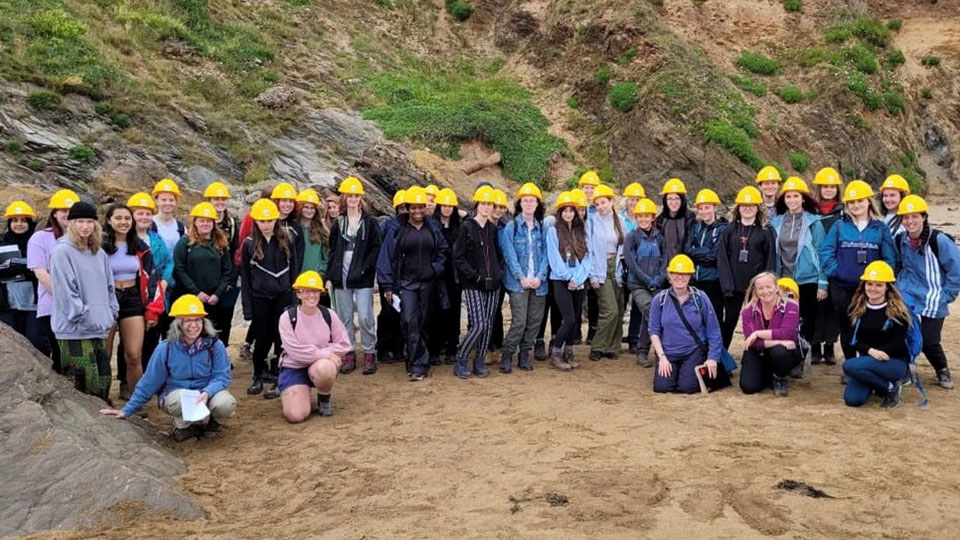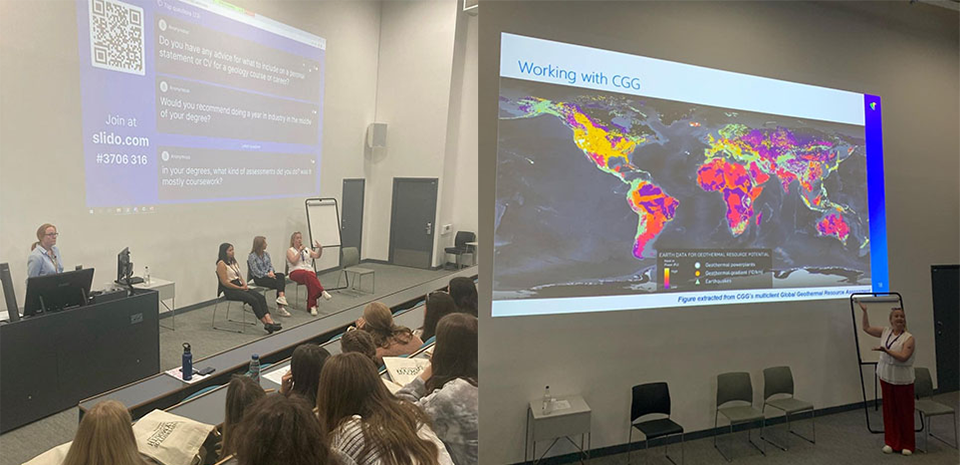Girls into Geoscience: Promoting Diversity in the Earth Sciences
Viridien Stories | Sep 6, 2022

Viridien hydrogeologist Helen Robinson is a volunteer for Girls into Geoscience, an award-winning STEM outreach initiative for 16- to 17-year-old girls. We spoke to her about the importance of encouraging gender diversity in the Earth Sciences, as well as her own journey as a hydrogeologist.
Helen, what is the aim of Girls into Geoscience?
Girls into Geoscience is a two-day event that was launched by the University of Plymouth, UK, to address gender balance in the geosciences. It gives up to 120 attendees the opportunity to spend two days at the university and experience what it’s like to undertake a degree program in the Earth Sciences. The event has been running for eight years and now has sister events in Scotland, Wales, and Northern Ireland, hosting over 1,000 girls, their teachers and some parents, too.
The event has really made a difference raising the profile of the geosciences as a career. By showing young females there are many different role models in the scientific community, the event is raising awareness and improving diversity. Since its inception, Girls into Geoscience has gone beyond an event and has become a network that also supports women in geosciences and those aspiring to be geoscientists.
What attracted you to this initiative?
When I started my higher education journey at the University of Plymouth, the number of female students studying an Earth Science degree was considerably low. This was reflected across all institutions within the UK and globally. However, this was not a reflection on any institution’s lack of motivation for diversity, but rather the low number of visible female role models for young women to look up to and aspire to be like.
Have things changed in terms of women studying sciences today?
Today, the uptake of Earth Sciences at university has increased significantly, with some institutions seeing more females enrolling compared to males. And while there remains some work to do, more women are continuing into the Earth Sciences as a career. This shift is in part down to the passion and enthusiasm of people like those at the University of Plymouth working on events like Girls into Geosciences.
On a personal level, when did you first know you wanted to be a geoscientist?
As a child, I was always fascinated by the world around me. I remember hearing about the eruption of Mount St. Helens in 1980, the heroism of the U.S. Geological Survey geologists monitoring the volcano months before the eruption and undoubtedly saving many lives. This was the inspiration for me to study geology; like them, I wanted to help society by better understanding our planet.
Does your current role of hydrogeologist fulfil this childhood ambition?
Working as a hydrogeologist in Viridien’s Geothermal Science team allows me to help people and our planet. My geological and hydrogeological skills can be applied to solve energy transition challenges, but the additional skills I have gained working in Africa, for instance, give me a better understanding of social and anthropological relationships between rural communities and water. Now I can support the energy transition in a way that supports environmental sustainability and a transition that is just.
I still love volcanoes. Having the opportunity to work on projects that aim to better understand the risks and hazards of magma-water interactions, from explosive eruptions to groundwater contamination, means I can return to where my interest all began.

